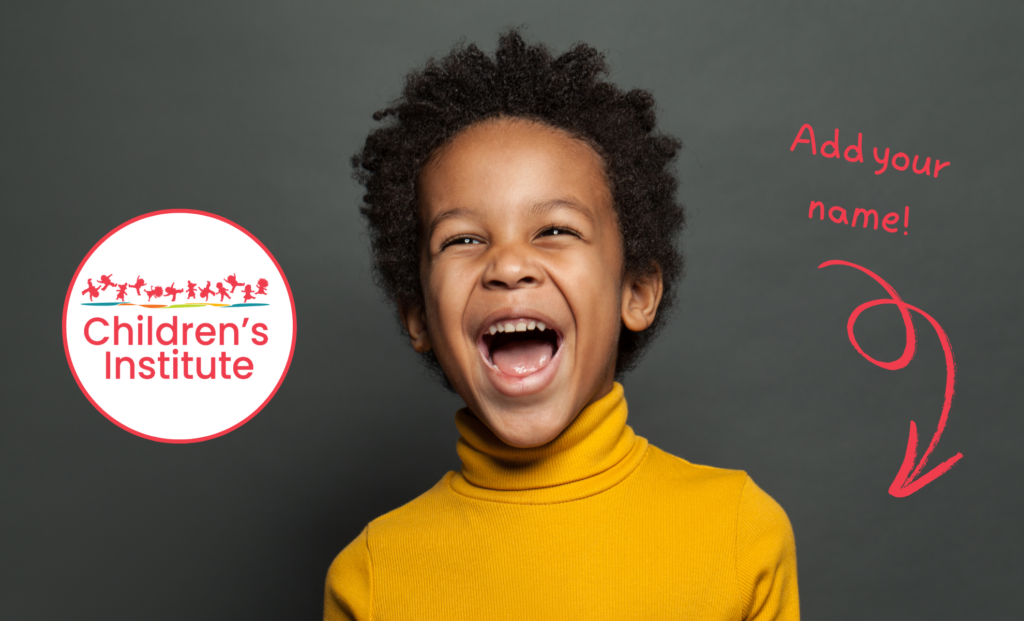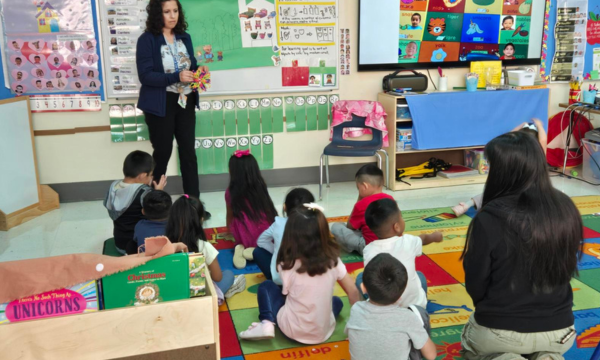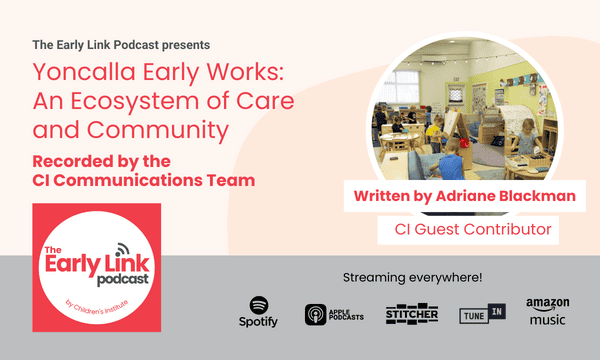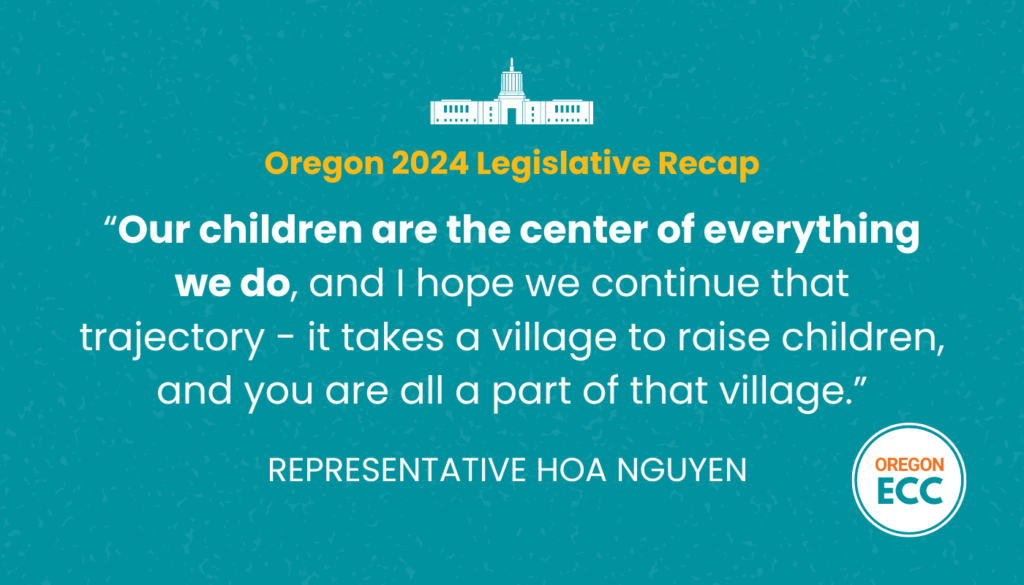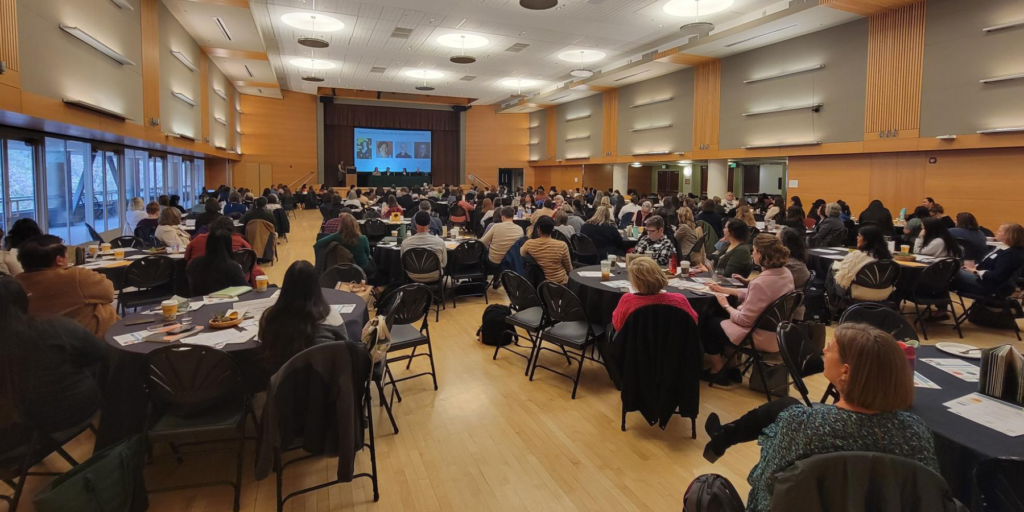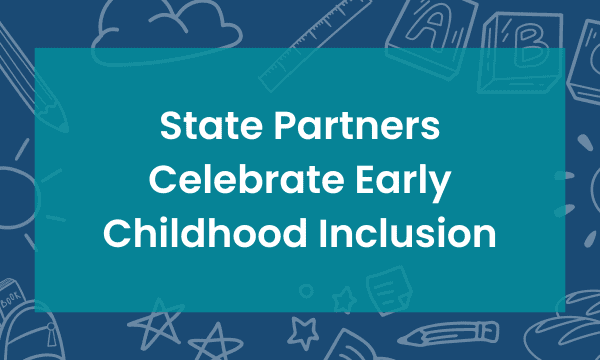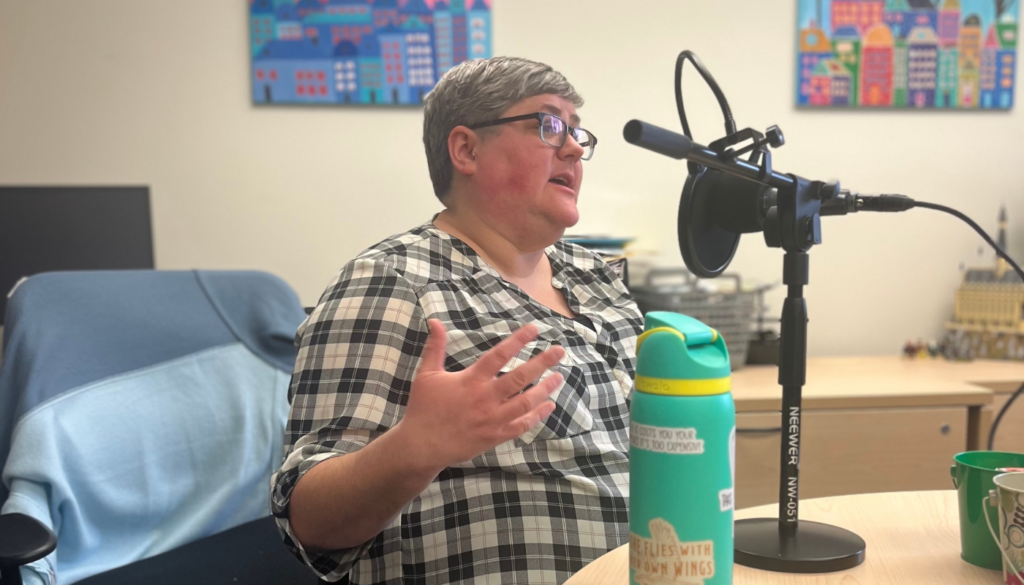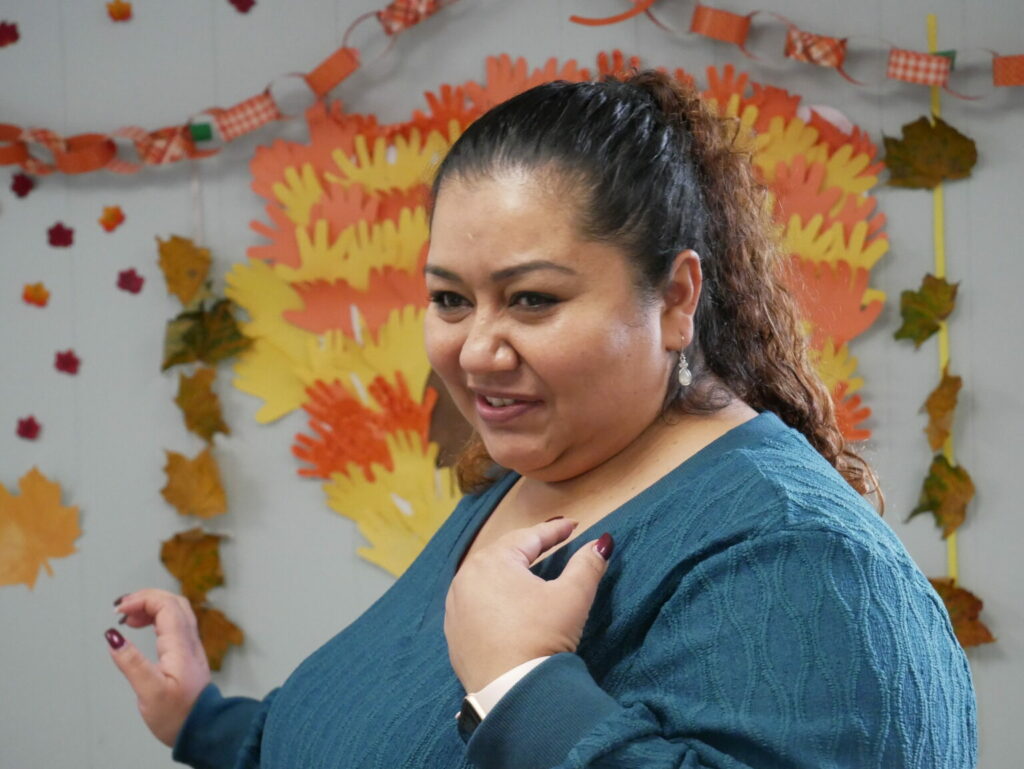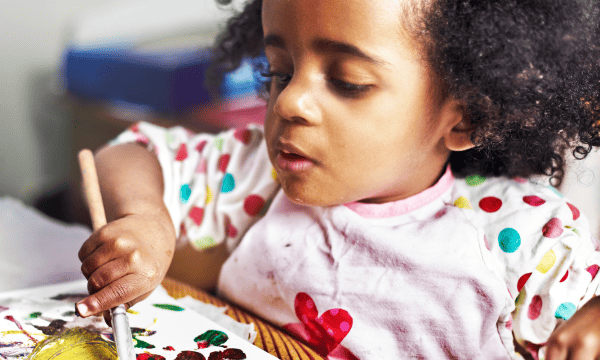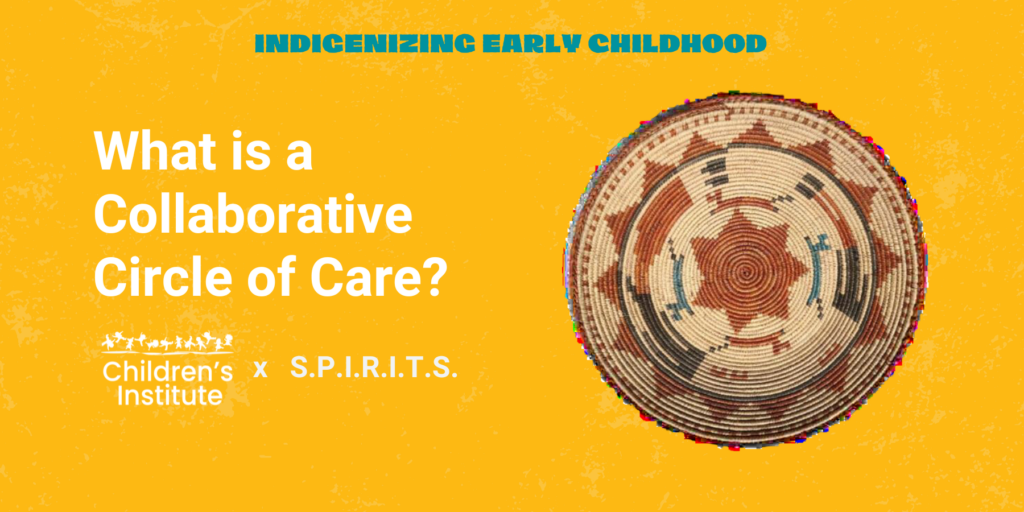Health and Development
Strengthen Early Learning and Care in Oregon!
Children's Institute believes that if we choose children, we can change the world. Join us by adding your name today!
Cornelius Elementary’s Early School Success
Cornelius Elementary School and Children’s Institute kicked off a Learning Tour on October 1, eager to showcase how their partnership is strengthening early learning for students.
An Ecosystem of Care and Community with Adriane Blackman
In the latest episode of the Early Link Podcast, the Children's Institute communications team records a long-form story by CI Guest Contributor, Adriane Blackman. Blackman's story, "An Ecosystem of Care and Community," delves into the transformation of early childhood education in Yoncalla, Oregon, documenting the impact of CI's Early Works initiative in partnership with incredible folks from across the community.
Short and Sweet: Oregon’s 2024 Legislative Session
As the Oregon 2024 Legislative Session ended this year, the Policy and Advocacy team at CI let out a deep breath of gratitude, relief, and excitement for the year ahead. Short sessions often prove frustrating for what can be accomplished, but this year built on the chaotic momentum of 2023’s session, clearing the path for early childhood advocates to make great strides forward.
The Oregon Early Childhood Summit
Held on Friday, March 22 at Portland State University, the Oregon Early Childhood Summit brought together early childhood professionals from across the state and across sectors to collectively envision a better future for children’s social-emotional health. The event was produced by Children's Institute and Trauma Informed Oregon.
State Partners Celebrate Early Childhood Inclusion
Oregon Early Childhood Inclusion (OECI) partners convened at Oregon State University for an annual celebration of statewide work to bring high‐quality, inclusive preschool policies and practices to all levels of Oregon’s early care and education system.
Inclusive Early Childhood Classrooms Support All Children
The CI Communications team sits down with Liane Chappell, principal at the Hillsboro Early Childhood Center in Hillsboro, Oregon, to talk about Early Intervention and Early Childhood Special Education. The goal of the Early Childhood Center is to serve kids who have delays and disabilities, and to help them make progress in the areas where they need support. As the 2024 legislative session continues, we want to emphasize the importance of Early Intervention and Early Childhood Special Education opportunities for children across Oregon.
Oregon’s Regional ‘Primeros Pasos’ Brings Together Sectors to Build Child Care for Latino Communities
In 2021, Mike McNally embarked on a mission to address needs identified by vineyard stewards in Oregon, focusing on housing and child care. This led to the formation of Primeros Pasos, a consortium aimed at creating best-in-class early childhood education and care for Latina communities in Marion, Polk, and Yamhill counties. Originally published by EdNC on 12/6/2023.
Supporting a Strong Start for Children with Disabilities
We often talk about how investing in a child’s earliest years can set them up for long-term success. In order to build a strong foundation during this period of rapid brain development, it's important to connect families with the tools needed to support their child’s development as early as possible.
Indigenous Wisdom and Collaborative Care in Early Learning
In collaboration with Suzie Kuerschner and S.P.I.R.I.T.S., we explore Indigenous innovations in early childhood, culturally-aligned educational services, and the power of Collaborative Circles of Care.

